 Good Morning - Thanks for your loyal RBR readership. Good Morning - Thanks for your loyal RBR readership.
RBR EPAPER - Gaining a personal edge on today's business day. Are you reading this from a forwarded email?
New readers can receive our RBR Morning Epaper for the next 30 Business days! SIGN UP HERE
|
|
|
|
|
Volume 22, Issue 238, Jim Carnegie, Editor & Publisher
|
Wednesday Morning December 7th, 2005
|
|
|
Radio News®
|
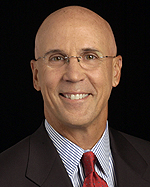 HD Digital Radio Alliance launches; Ferrara in charge HD Digital Radio Alliance launches; Ferrara in charge
We pegged it (11/29 RBR #232): Finally, a coordinated industry effort to compete with the format variety of satellite radio. Yesterday in NYC, most of the big radio groups got together and announced the Orlando-based "HD Digital Radio Alliance," the industry's means to coordinate the HD roll-out in each market, develop programming for multicast (HD-2) channels, create HD and HD-2 awareness ads (200 million bucks worth next year alone), and work to get HD manufacturers moving on multicast receivers and the automakers as well for OEM deals. Peter Ferrara from Clear Channel is the President/CEO of the new alliance and will be solely dedicated to and paid by the alliance. Participating groups so far include Bonneville, Citadel, Clear Channel, Cumulus, Emmis, Entercom, Greater Media and Infinity. Staff will be hired there on an as-needed basis. The plan right now is talent will be contracted out from the participating companies to do various projects. Each station participating will launch only one HD multicast signal, at least initially. Serving on the consortium's oversight management committee are Mark Mays, CEO for Clear Channel; Peter Smyth, president and CEO for Greater Media; and Joel Hollander, CEO for Infinity Broadcasting. The new HD-2 channels will be commercial-free for at least two years. It's all about changing radio's declining image among listeners (especially younger ones) of stale, boring and predictable. We spoke with Ferrara on that: "I was talking with somebody over at the press conference and they asked me if I thought it was going to be challenging for the programming people to come up with new format ideas. And I said No, I don't think it's going to be challenging at all. I think it's going to really stimulate their interest and creativity in doing this. They get a chance to experiment again. They get a chance to try new things."
| Much more with Peter Ferrara |
RBR observation: The planning for this came to light months ago (9/6/05 RBR #174) and the groups had hoped to have it ready to announce at the NAB Radio Show last fall in Philadelphia. But these things take time to come together. It is vital that the radio industry speak with one voice to promote HD Radio to the US public and roll it out in an orderly manner. We don't need to remind anyone of the experience with AM stereo. While there's been a lot of talk about the programming side of the Alliance, which will provide unique programming for the new HD-2 channels, we think the more important parts are the plans to introduce HD Radio to the public and convince automakers to put the receivers in new cars. Even if your company has its own plans for programming HD-2 channels, you would do well to find out what the Alliance will be doing to make it possible for people to actually receive those new channels. Finally, we at RBR agree on this concept and the need to be done in more ways than one but it is a start in the right direction - Speaking with One Voice.
 Job one: Job one:
Get receivers in the dash
Now that the long-anticipated HD Digital Radio Alliance is official, Fig Media President Bill Figenshu points out that the biggest goal now is to "Get it into the cars. That's number one. All discussions about programming and all that has to be tempered with get it in the cars. Get affordable radios in the stores too - - tabletops under $499. Then the programming - - it's chicken and egg. And they need plenty of eggs and chickens right now. Overall, I think this is a great initiative. And as always with any initiative it always gets down to the execution. And if they execute, Rock & Roll." He also agreed, HD's appeal isn't so much about better sound quality but having more choices, as with HD-2 channels. Fig pointed out he's never met anyone who's complained about the quality of a full-market FM analog signal. There's no amazing outcry that says, "give us higher quality" in terms of audio. Also, if the programming options are just "watered down versions of current AM and FM programming," then there won't be any demand for it. Bottom line: As Interep's Class of 2009 study pointed out, the younger folks follow the music - - the new music especially. If they can't find it on radio, they will find it on their iPods and online. An expensive HD Radio receiver has to have the same or better VALUE than alternate forms of media devices before they'll be taking them off the shelves. The content can make or break that value.
RBR observation: One editor here came up with copy for a radio spot: A passenger gets in a friend's car and asks the driver, "Why is that car radio so big? It takes up almost all the dashboard!" The driver responds, "Oh, it has HD Radio with HD-2 reception - - twice as many channels and formats." The passenger asks, "How much is the subscription?" The driver answers, "It's real radio - - free like it always was!" Voice over: HD Radios with HD-2 channel reception aren't actually any bigger, everyone will just think they are with all the new channels." Get yours at Best Buy, Circuit City, Wal-Mart and in all 2007 GM, Ford and Chrysler cars. No subscription required!"
|
|
|
Study: People want digital radio, but not monthly bills
The biggest news about HD Radio yesterday may not have been the announcement in New York, big as that was, but an article in the Personal Journal section of the Wall Street Journal. Auto industry columnist Joseph White's feature on new car options dissected a JD Powers & Associates survey of 17,000 consumers on what new car options they were most interested in - - and what they were willing to pay for them. Ranked #3 was "high-definition radio," even though HD Radio receivers are hardly even out in the market yet. The survey found that at a one-time cost of 150 bucks, people were eager to have a digital radio receiver in their car - - but didn't want to pay the monthly subscription fee for satellite digital radio. JD Powers researcher Lawrence Wu told the WSJ it appeared that HD Radio is a new technology which could take off because consumers don't like monthly bills. According to alert reader Bill Wertz of Fairfield Broadcasting Company, who drew our attention to the WSJ story: "As an industry we should move this story from page D2 to the top of our list and I'd submit make it a news story we include in our daily newscasts as this is very good news for the radio model we all know and love so well."
RBR observation: How ironic. XM and Sirius have been spending millions and millions to convince people that they need digital quality radio in their cars. It appears that the sound quality message has gotten through - - but folks still don't want to pay for radio programming. They'll pay the one-time cost for equipment, but are willing to accept a few commercials rather than pay a subscription fee. The satellite guys may have blazed the trail for the public to quickly embrace free HD Radio.
 Will kid's food advertising Will kid's food advertising
be blinded by science?
The Institute of Medicine of the National Academies lays a major portion of the blame for bad eating habits among the nation's youth on food and beverage marketing targeted to children ages 12 and under. It goes on to recommend that if those involved in such marketing do not clean up their act voluntarily, that Congress step in and force the issue. "Because dietary preferences and eating patterns form early in life and set the stage for an individual's long-term health prospects, significant changes are needed to reshape children's awareness of healthy dietary choices," the report says. "Manufacturers and restaurants should direct more of their resources to developing and marketing child-and youth-oriented foods, drinks, and meals that are higher in nutrients and lower in calories, fat, salt, and added sugars." And now for the kicker: "If voluntary efforts by industry fail to successfully shift the emphasis of television advertising during children's programming away from high-calorie, low-nutrient products to healthier fare, Congress should enact legislation to mandate this change on both broadcast and cable television." On the table is an estimated 10B chunk of the advertising pie. The study laid most of the blame on television's doorstep, but said this was partially because it has received the most attention from researchers. It noted growing use of the Internet, mobile phone ads and product placements in video games and elsewhere. The study was requested by Congress in general and Sen. Tom Harkin (D-IA) in particular.
RBR observation: Members of the RBR Washington office moonlight as the parental units of six children. We would say that our influence over our children's diet easily overrides the influence of Madison Avenue types, so far. One key to doing this successfully is to occasionally give in to the little ones' desire for some hotly advertised product (and we'll say that when given a fast food option, the choice is often made on the basis of what the current toy giveaways are). However, we have no reason to believe that all parents are as vigilant as we are. Further, this study is based on 120 studies, so its conclusions are going to be difficult to challenge. And in Washington, whenever the magic word "children" is uttered, it's best to put on your legislative flak helmet and any legislative body armor you can muster.
|
 |
Reynolds confident of post-Stern world for Infinity
Fred Reynolds, who will become CFO of the new CBS Corporation, told the CSFB Global Media Week conference in New York that the company is confident that Infinity Broadcasting is well positioned to continue after Howard Stern leaves this month for Sirius Satellite Radio. Although Stern brought in lots of revenue, Reynolds noted that the show was also costly. "I think it's obviously incumbent upon [Infinity CEO] Joel [Hollander] and the team to come up with a way to capture a good part of that revenue - - I'm sure not all - - but at a far less cost," Reynolds said. "I think our profitability will be fine," he added. What about Infinity's past talk about divesting some of its smaller markets? Saying that CBS is still "fine-tuning" its stations portfolio in TV, Reynolds said the company will continue to do that in radio as well. "I don't think it's any magical demarcation like above market 50 we don't want to be in, because some of those are fast-growing markets. So, I think you'll see probably a net reduction in radio," he said, adding that it might be something like "we sell five here and add one there, we sell five there, we add three here." According to Reynolds, "it's about putting our radio assets in the markets that we think have the most up side and consolidating there - - and probably, by definition then, looking at would someone else view this other market differently and pay us the kind of value [we want]."
 Reynolds: It's about content, Reynolds: It's about content,
not "old" or "new" media
With CBS Corporation just weeks away from being separated from the other half of Viacom, CFO-to-be Fred Reynolds isn't buying the idea that he's signed on for a stint with an "old media" company whose time has past. "If you look at CBS across all of our assets, we're really about content first and then distribution second," Reynolds told the CSFB Global Media Week conference in New York. Citing a number of new technologies and distribution platforms, he said "our view is that it's more opportunity for us to get paid for our content." Reynolds notes that about half of all the money CBS spends is to create content. That content, such as network TV programming, is designed to pay for itself the first time it's delivered to the public. "We make money on everything we air. Now we get another play on it - - a replay. And users and listeners and viewers want more control over their day, so they want to see that content when they want to see it. Our goal is to be sure we get paid for it," he said.
|
|
|
|
|
Adbiz©
|
Jaguar and Land Rover pull gay publication ads
Ford said its luxury Jaguar and Land Rover brands will no longer advertise in gay publications such as The Advocate, but a spokesperson denied the automaker made the decision under pressure from conservative Christian groups. "The decisions with regard to advertising was a business decision," Ford spokesman Mike Moran told The AP. He said Ford's Volvo brand would continue advertising in gay publications and that it hasn't advertised its Ford, Lincoln and Mercury brands in those publications. Moran said Jaguar and Land Rover, which are part of Ford's Premier Automotive Group, have decided to cut back on their advertising because of difficult market conditions. It reported a pretax loss of 108 million in Q3. "They feel pressure on their marketing budgets, so they decided to streamline marketing across the board," Moran told the AP. "They're not supporting as many publications and events as before in 2006." The AP pointed out Ford's move came nearly a week after the Tupelo, Miss.-based American Family Association canceled a boycott of Ford vehicles that began in May, when the group criticized Ford for being too gay-friendly. "We are ending the boycott of Ford," association Chairman Donald Wildmon said in a statement Wednesday. "While we still have a few differences with Ford, we feel that our concerns are being addressed in good faith and will continue to be addressed in the future." The American Family Association first announced the boycott against Ford and related brands on May 31. The group said Ford gave thousands of dollars to gay rights groups, offered benefits to same-sex couples and actively recruited gay employees.
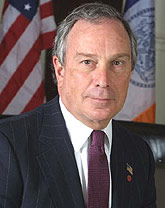 Bloomburg drops 77M on the Big Apple Bloomburg drops 77M on the Big Apple
Re-elected billionaire New York Mayor Michael Bloomberg entered the rarified air of presidential candidates this past November, in terms of campaign spending. According to the Associated Press, the 77M spent on his latest campaign, most of it out of his own pocket, amounted to over 100 dollars per vote, and eclipses most campaign budgets for any office short of the one they call Oval. Was it overkill? The pockets of his opponent, Fernando Ferrer, were not nearly so deep - - forced to raise most of his cash, Ferrer failed to get into double digits, ending up just topping the 9M mark. Bloomberg crushed Ferrer by 20 points, 753K to 503K. Bloomberg spent a good deal of his money on broadcast advertising. The wide disparity between the candidate's warchests prompted the local chapter of Common Cause to sound alarm bells about the pernicious role of cash in the electoral process.
Euro RSCG makes changes in Latin America
David Jones, Global CEO of Euro RSCG Worldwide announced that Javier Vale, CEO of Euro RSCG Latin America will become Chairman of Euro RSCG Latin America. Ricardo Monteiro, CEO of Euro RSCG Lisbon will become CEO of Latin America; he will split his duties between Portugal and the Latin American region. Monteiro will also be a member of the Euro RSCG Worldwide Executive Committee and will report to Jones.
|
|
|
|
| Media Business Report |
 Continued softness Continued softness
seen for newspapers
If it's any comfort for radio and TV executives, the advertising market isn't any stronger for newspapers - - and they won't get nearly the political boost of their broadcasting peers next year. Classified advertising has been the print sector this year. James Conaghan, VP of business Analysis & Research for the Newspaper Association of America, told the UBS Media Week Conference in New York that he expects classified to be up 5% this year, with retail up only 2% and national advertising down 2%. That's an overall advertising gain of 2.4%. He's expecting about the same for retail and classified next year, with national turning positive for an overall 3.1% gain in print advertising - - 4% if you also add in newspapers' Internet sites. But while newspapers are making money on the Internet, they're also challenged by new competitors for the lucrative classified business. "I'm very concerned with the advent of Craig's List and Google," said Miles Groves, President of MG Strategic Research. He thinks that newspapers who are aggressive in moving online will be able to adapt, but that some of the technological laggards may suffer as Internet sites move aggressively to establish local businesses competing directly with newspaper classifieds. For his part, Groves is looking for newspaper ad revenues to be up only 3.4% in 2006.
|
|
|
|
| Media Markets & MoneyTM |
Reeves hops into Hopewell
Ronald Reeves' Benjamin-Dane of Virginia is getting its third station and first in Virginia via a 200K cash deal for WHAP-AM Hopewell VA. The James River town is in the Richmond market. The seller, Mainquad Communications, will still be in the market with a pair of FMs, WARV-FM Peterburg and WCUL-FM Midlothian. Reeves also owns two other AMs near something - - an AM Havre de Grace MD, near Baltimore and another in Pineville LA, near Alexandria.
|
|
|
|
| Washington Beat |
 Commerce to put FCC under microscope Commerce to put FCC under microscope
Apparently 14 communications hearings will not be enough to get 2006 in gear for the Senate Committee on Commerce, Science and Transportation. Chairman Ted Stevens (R-AK) and Co-chair Dan Inouye (D-HI) have added a 15th, on the 15th in fact, of February. That's a Wednesday. The 10:00AM session has a tantalizingly wide open title: "FCC Activities and Policy." Given the breadth and width of the FCC's areas of purview, plus the likely addition of two new Republican commissioners by then, this session could be about almost anything. Big broadcast issues figure to be front and center, including indecency - - with cable purchasing options as a major side show, the DTV transition - - with multicast must-carry as a major side show, and the FCC's attempt to rework the 6/2/03 media ownership rulemaking package. Which is to say nothing about telephones, broadband, public safety issues......
| Here's the Committee's updated 2006 sked |
|
|
|
|
| Programming |
Quotes from Stern-O'Reilly interview
Here are the actual quotes from the Howard Stern interview airing tonight and Thursday night on Fox News Channel's "The O'Reilly Factor." Stern tells O'Reilly that he's a "lock" to succeed on satellite radio, but may retire from the medium in five years.
| Stern commented on the following: |
|
|
|
|
| RBR Stats |
Nielsen Outdoor: data shows males 35-54
have most exposure to outdoor
Nielsen Outdoor announced the results of its outdoor ratings service in Chicago. The results are the culmination of a three-year joint effort with the industry to develop a dependable, people-based audience measurement system for outdoor advertising that provides ratings data comparable to other measured media.
| Read More... |
|
|
|
|
| TVBR - TV News |
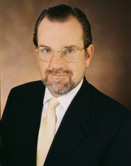 Poltrack sees nets up 7% in 2006 Poltrack sees nets up 7% in 2006
CBS Executive VP of Planning and Research David Poltrack turned out to be a bit too optimistic about 2005. He'd predicted a year ago that ad revenues for the big four TV networks would be up 2.5%, but he told the UBS Media Week Conference in New York that he's now expecting the final tally to be up only 1.5%. But he's again bullish on 2006, forecasting that revenues will be up 7%. That's partly because of the Winter Olympics on NBC, of course. Taking out the cyclical impact of the Olympics, Poltrack says underlying growth for 2006 will be around 5%, compared to 5.3% this year. "I would describe the current advertising market as unsettled," Poltrack said. He said there have been quite a few new product launches, which is good for network TV, but also little or no growth in the biggest ad categories. Although he admits that the negotiating advantage in the recent upfront shifted from the sellers to the buyers. That's because leadership in the TV industry shifted from NBC to CBS and ABC. But because of that, he said the networks held back more inventory for the scatter market, rather than accept the rates being offered in the upfront. So, while CPM increases for the four major networks averaged only 3% in the upfront, he's forecasting a 7% revenue gain in 2006 not only because NBC will have its Olympic revenues, but because the networks will be selling scatter at higher rates than they got in the upfront. "The fourth quarter scatter market has been solid and has shown positive momentum going forward," Poltrack noted.
|
|
|
|
| Transactions |
875K WBLA-AM & WGQR-FM Elizabethtown NC from Sound Business of Elizabethtown Inc. (Lee W. Hauser) to Christian Listening Network Inc. (George E. Wilson, Jeffrey S. Wilson, Regina W. Parker, Michelle W. Lhitellier, Sharlene W. Tew). 10K escrow, balance in cash at closing. [File date 11/15/05.]
29.5K WMRK-AM & WALX-FM Selma AL. 80% of Alexander Broadcasting Co. Inc. from Thomas E. Alexander Sr. Family Trust (40.8% to 0%), Estate of Betty H. Alexander (32.8% to 0%), Thomas E. Alexander (3.2% to 0%), Mark Alexander (3.2% to 0%) to Paul Scott Alexander (20% to 100%). Cash. Duopoly with WJAM-FM Orrville AL. [File date 11/14/05.]
|
|
|
|
| Stock Talk |
What have ya done for me in the last hour?
A government report showing the biggest surge in productivity in two years gave stock prices a boost early in the session, but those gains had pretty much evaporated by the closing bell. The Dow Industrials rose 22 points to 10,857.
Radio stocks were lower. The Radio Index dropped 1.438, or 0.8%, to 186.138. Saga was hit hard, although there was no news about the company. It fell 7%. Leading the other way were Arbitron and Disney, each up 2%.
|
|
|
|
| Radio Stocks |
Here's how stocks fared on Tuesday
| Company |
Symbol |
Close |
Change |
Company |
Symbol |
Close |
Change |
|
Arbitron
|
ARB
|
|
39.97
|
+0.81
|
Jeff-Pilot
|
JP
|
|
55.69
|
-0.15
|
|
Beasley
|
BBGI
|
|
13.49
|
-0.23
|
Journal Comm.
|
JRN
|
|
13.75
|
+0.11
|
| Citadel |
CDL |
|
13.61 |
-0.04 |
Radio One, Cl. A
|
ROIA
|
|
11.04
|
-0.14
|
|
Clear Channel
|
CCU
|
|
33.06
|
-0.02
|
Radio One, Cl. D
|
ROIAK
|
|
11.05
|
-0.13
|
|
Cox Radio
|
CXR
|
|
15.01
|
-0.08
|
Regent
|
RGCI
|
|
4.85
|
-0.02
|
|
Cumulus
|
CMLS
|
|
12.03
|
-0.07
|
Saga Commun.
|
SGA
|
|
11.07
|
-0.84
|
|
Disney
|
DIS
|
|
25.52
|
+0.51
|
Salem Comm.
|
SALM
|
|
18.95
|
-0.15
|
|
Emmis
|
EMMS
|
|
20.18
|
-0.12
|
Sirius Sat. Radio
|
SIRI
|
|
7.21
|
-0.11
|
| Entercom |
ETM
|
|
31.65
|
-0.23
|
Spanish Bcg.
|
SBSA
|
|
10.54
|
+0.07
|
|
Entravision
|
EVC
|
|
7.25
|
unch
|
Univision
|
UVN
|
|
30.47
|
+0.18
|
|
Fisher
|
FSCI
|
|
45.14
|
-0.01
|
Viacom, Cl. A
|
VIA
|
|
34.84
|
+0.39
|
|
Gaylord
|
GET
|
|
42.45
|
-0.70
|
Viacom, Cl. B
|
VIAb
|
|
34.83
|
+0.35
|
|
Hearst-Argyle
|
HTV
|
|
24.08
|
-0.02
|
Westwood One
|
WON
|
|
18.22
|
+0.07
|
|
Interep
|
IREP
|
|
0.37
|
unch
|
XM Sat. Radio
|
XMSR
|
|
28.35
|
-0.55
|
|
|
|
|
|
|
Bounceback
|
 We want to We want to
hear from you.
This is your column, so send your comments and
a photo to [email protected]
|
|
|
Radio Media Moves
|
 Berger lands Berger lands
at Infinity
We now know what bigger company lured Walter Berger away from Emmis (12/5/05 RBR #236) - - it was Infinity Broadcasting. Berger has been named CFO of Infinity, beginning in January after Viacom splits in two later this month, with Infinity in the new CBS Corp. Berger succeeds Jacques Tortoroli, who is moving up to the CFO position at New Viacom (10/6/05 RBR #196).
 New AMS office New AMS office
Gene Ferry has joined American Media Services and will open the brokerage company's newest office in Denver. He had been a regional manager for Waitt Radio Networks.
Bell rings for Power
Nate Bell has been named Program Director of Clear Channel's WWPR-FM "Power 105.1" NYC, effective January 2nd. He's been the company's Operations Manager/Regional VP of Programming for the Mid-America Trading Zone, based in St. Louis.
Hayes to Cox board
Jimmy Hayes has been elected to the board of directors of Cox Radio. He is Executive VP of Cox Enterprises, the majority owner of the radio company.
|
|
|
Stations for Sale
|
KWAM 990AM Memphis
Heritage full-time station with great coverage. Station and transmitter site for sale by owner.
Mark Jorgenson
Concord Media Group, Inc.
(828) 859-6982
[email protected]
NEast CapCity FM
Suburban FM, strong revenue history-less than 8.5x BCF - 2M.
[email protected] or
781-848-4201
|
|
|
Below the Fold
|
Ad Biz
Jaguar and Land Rover
Pull gay publication ads denied the decision under pressure...
RBR Stats
Males 35-54 exposure to outdoor
Nielsen Outdoor uses portable GPS devices to track the travel patterns...
Media Business Report
Continued softness seen for newspapers
Won't get nearly the political boost of their broadcasting peers next year...
Washington Beat
Commerce to put FCC under microscope
14 communications hearings will not be enough...
|
|
|
More News Headlines
|
Seeman out
at Clear Channel
Another long-time manager has been pink-slipped by Clear Channel Radio. The Minneapolis Star Tribune reports that long-time Twin Cities radio manager Dan Seeman saw his job as VP/GM eliminated in a cost-cutting move.
|
|
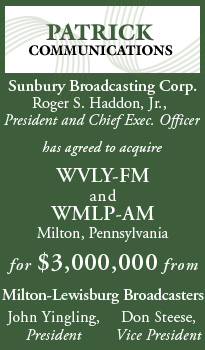

|
Download Now
December '05 RBR/TVBR Solutions Magazine
|
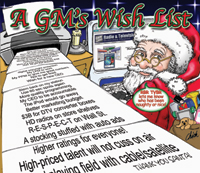
As a Professional courtesy and your convenience we have produced our printed Magazine in PDF Format. Read the pdf version from the link below or right click and choose "Save Target As" to save the pdf.
Read December's
RBR/TVBR Magazine
 This pdf requires version 6.0 or later. This pdf requires version 6.0 or later.
Use this button to update now.
|
|
|
RBR Radar 2005
|
|
Radio News you won't read any where else. RBR--First, Accurate, and Independently Owned.
|
Gloomy on ad outlook 2006
Seeing ad spending trail GDP growth this year, Universal McCann guru Bob Coen expects more of the same in 2006, with total ad spending up 5.8%, vs. 4.6% this year. In radio, he expects national business (network and spot combined) to be up 4% and local 4% as well. RBR observation: Much as we'd like to see more growth in 2006, we can't disagree with Coen's basic projections. Final projections for this year still look too high, given the industry's flat performance through October reported by RAB. That may explain why he appears, at this point, to have too high of a projection for 2006. Coen insisted that he wasn't optimistic at all. "The radio situation is in turmoil right now.
12/06/05 RBR #237
Arbitron chief
downplays VNU buyout
CEO Steve Morris noted that while lots of people have suggested that his company is a buyout prospect for Nielsen owner VNU, he doesn't see it happening. Given its (VNU) current internal turmoil, he doesn't see VNU acquiring anything. Noted that having Nielsen do a Portable People Meter (PPM) joint venture with Arbitron would be a lot more efficient way to get access to the PPM technology than trying to buy Arbitron. RBR observation: Upbeat Morris or trying to put a smile on the face as many had hoped for and still do that Nielsen would acquire Arbitron. People inside Arbitron would make a few dollars and forward motion into the balance of this decade would move at a quicker pace. Now both ratings firms are treading water: VNU/Nielsen in limbo for months as this company is in play and Arbitron wishing to Santa to get bags of support from radio on PPM. Not happening except one thing - both ratings companies will have to continue to spend money on research and forward motion with little light at the end of the tunnel into next year of grand participation from broadcasters.
12/06/05 RBR #237
ZenithOptimedia lowers
global ad Outlook
Online up - lowered its projections for ad spend in 2006, predicting U.S. spending will grow only 2.9%, compared with a 3.6% gain it predicted in October. Worldwide ad spend is now expected to grow only 4.8%, compared with its previous forecast of 5.2% growth. However, it upped its online ad spend prediction for 2005: up to 4.6% from 4.3%. It also predicted that by 2008 online will account for 6.4% of global ad spend, and from 2005-2008 inclusive, 15.8 billion new ad dollars will be created, or 17% of total global ad growth.
RBR observation: In other words if you are not fully engaged into the new media world that the consumers are participating in you are out and we me out. Media executives had three years to improve and grow with the technology but many have just been sitting on their thumbs going into a new year. Too late and it will be shown next year RBR was right - Technology waits for no one.
12/06/05 RBR #237
Analyst sees Radio flat, TV down
RAB's reported 7% October drop in radio revenues has made it impossible to have a positive number for Q4, Harris Nesbitt analyst Lee Westerfield is projecting that radio revenues will be flat for 2005 and then rise 3% in '06. For spot TV, a big impact from the two-year cycle of elections and Olympics, with '05 down 7%, then up 9% with next year's political/Olympic spending. For all of television (network, spot and syndication combined), ad revenues could be up 8.5% next year.
RBR observation: Bottom line - if you do not have your, ah, stuff together now you are in deep.
12/05/05 RBR #236
Internet advertising:
A place for convergence?
eMarketer says advertising using video on the Internet will rake in 225M this year, and will nearly triple - - to 640M - - by the end of 2007, on its way to 1.5M annually by the end of the decade. RBR observation: This advice applies to radio broadcasting just as much as it does to television, in our opinion. Broadcasters - - like everyone else in America - - are obviously taking the world wide web into account. It's a rare station or company which is operating without a website. The fact is, many companies, not the least of which is the one whose primary product you are now reading, have had their core business model utterly transformed by the Internet. (Paper? Ink? Printing press? Big Postage? What are those?). The key piece of advice here is to stay on top of developments daily, and make sure the Internet is your partner, not the 800-pound gorilla that has you for lunch.
12/05/05 RBR #236
|
|
|
|
 |
Account Executive - Suburban, NYC
It is Star 99.1, NYC's only Contemporary Christian music station. We look for overachievers with significant radio sales experience and offer base salary, commission, benefits and a positive environment. Giving you the tools to do your job to succeed. See Radio Careers
Sales and Marketing
Executive sought by rapidly growing participatory Television Company. Experience selling innovative programming to cable operators and programming executives across the United States with all aspects of the launch and rollout of a new program offering. Building a sales team and managing with their peers in the company. Prior relevant experience is a requirement. Competitive salary, benefits and stock options.
See TV Careers
|
 |
|
|
|
|
Help Desk
|
Having problems with our epapers?
Please send Questions/Concerns to:
[email protected]
If you wish to remove your name completely from our database use this link __UNSUB__
RBR Epaper --  108 annual 108 annual
or just  9 a month 9 a month
|
|
|
|
©2005 Radio Business Report, Inc. All rights reserved.
Radio Business Report -- 2050 Old Bridge Road, Suite B-01, Lake Ridge, VA 22192 -- Phone: 703-492-8191
|
|